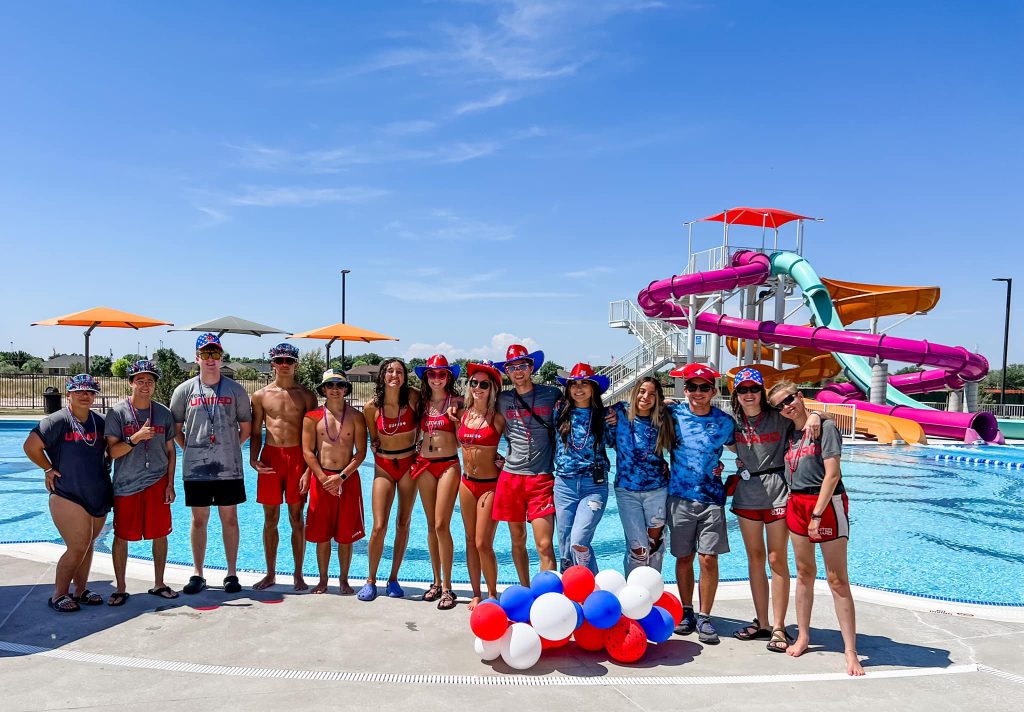Image courtesy of Artesia Aquatic Center
The recent lifeguard shortage has been a pressing issue for aquatics center management across the nation. The American Lifeguard Association estimated that one-third of the 309,000 pools in America were affected by the lifeguard shortage in 2023 and will be reducing their hours or closing their pools in 2024. Because of this, the need for effective solutions is more urgent than ever. Let’s dive into the root causes of this problem and explore actionable strategies that can aid in successful lifeguard hiring.
Why is there a Lifeguard Shortage?
Several factors contribute to the lifeguard shortage. The cancellation of lifeguard certification classes during the early stages of the pandemic has significantly contributed to the depletion of qualified staff. Additionally, rising housing costs in communities nationwide make it challenging to attract seasonal workers. Additionally, the economic aspects of lifeguarding jobs have been identified as a deterrent for many potential candidates.
Aquatics center managers are faced with the daunting task of ensuring public safety while grappling with this shortage. The impact of this shortage extends beyond convenience, as public pools provide a safe and supervised environment for individuals to learn swimming, a crucial life-saving skill.
Strategies for Overcoming the Lifeguard Shortage
- Competitive Wages: One key strategy that cities are employing involves offering increased wages. Compensation plays an essential role in attracting and retaining lifeguards. Offering competitive wages can make the job more appealing and help in beating the lifeguard shortage. According to an article from Stateline, cities that have boosted wages to combat the shortage have seen promising results.
- Removing Barriers to Hiring: Expanding the candidate pool by removing unnecessary hiring barriers can also be beneficial. This might include lowering age restrictions or removing unnecessary education requirements that limit the number of potential applicants.
- Active Recruitment and Training: Comprehensive training programs that equip potential lifeguards with the necessary skills can help address the shortage. Also, partnering with local schools and community organizations can create a steady pipeline of new certified lifeguards.
- Incentives and Benefits: Some cities have taken a unique approach by offering cash incentives to certified lifeguards who join the facility’s team. Providing incentives and benefits not only attracts recruits but can also encourage existing lifeguards to stay on.
- Community Engagement: Engaging with the community and promoting the benefits of being a lifeguard can boost recruitment. Highlighting the skills gained, the importance of the role, and the potential for career development can attract more people to the profession. Lifeguarding isn’t just a summer job for high school kids, lifeguards are essential workers that are part of a city’s emergency response team. Another effective strategy is junior lifeguard programs that teach important skills to the next generation of lifeguards and help them build a connection with the job and the pool.
The lifeguard shortage is a complex issue that requires a multi-faceted approach. By understanding the causes and implementing effective strategies, aquatics center managers can ensure their facilities remain safe and operational. Every lifeguard you recruit and retain contributes to a safer and more enjoyable aquatic experience for everyone.
The Sports Facilities Companies is the ultimate partner for aquatics operations & management. We can not only help ensure that your pool stays staffed this season, but we can also help you implement creative programming, decrease subsidies, improve safety, and provide a great guest experience all season – or all year long. If you are having difficulty managing your aquatic facility, contact us or give us a call at (727) 474-3845.






